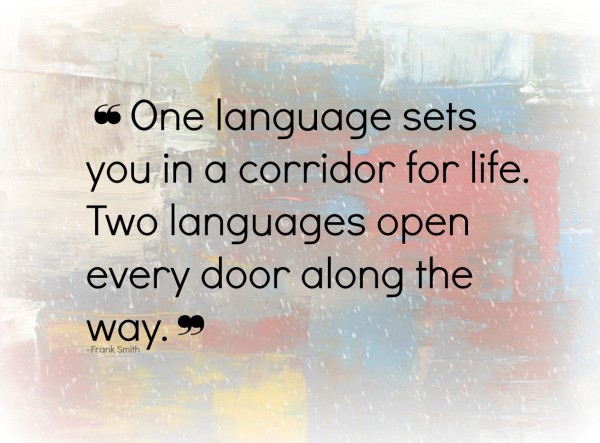Department:
Miss M Davies - Head of Department
Mrs A Price
Mr D Farr
Mrs N Rowlands
To contact a member of staff please email post@bromorgannwg.org.uk
Twitter: @ieithoeddyfro
Extra Activities:
- French Club (Secondary)
- French Club (Primary)
- Spelling Bee


KS3 (Year 7-9)
|
Year |
Term |
Theme |
|
7 |
Autumn |
Moi et Ma Région Learning how to introduce ourselves in French as well as saying where we live and giving an opinion on the area in which we live. |
|
|
Spring |
La Ville D’Ys A study of a French legend which ties in with describing ourselves and others while developing a deeper understanding of triple literacy. |
|
|
Summer |
Les Vacances Discover the world around us by learning about other countries and activities to take part in on holidays. We will also be describing the future simply in French. |
|
8 |
Autumn |
Mon collège We will be able to talk about the subjects which we are studying and express our opinions extensively in discussion. We will be able to describe different aspects of school life such as amenities, uniform and lunch time activities in the present and past tense. |
|
|
Spring |
Mes Passe-Temps We will be able to discuss the advantages and disadvantages of sports and leisure activities by using the present, past and future tense. |
|
|
Summer |
Au Resto Increase our awareness of French culture through learning about traditional French food. We will be able to discuss the advantages and disadvantages of health food and junk food confidently. Using the conditional whilst discussing our ideal meal. |
|
9 French |
Autumn |
L’environnement Learn about the environmental problems in the world and considering some solutions by using framework to express our opinions extensively. We will be able to discuss the advantages and disadvantages of different types of energy. Using the present, past and future successfully whilst discussing how we can help the environment. |
|
|
Spring |
La Technologie Considering the advantages and disadvantages of modern technology including social media, cyberbullying and technology of the future. Use the present, past and future tense successfully whilst discussing how we use technology in our lives. Learn to use the conditional whilst discussing future technology. |
|
|
Summer |
Les Choristes Study of a French film, ‘Les Choristes,’ which follows a boys’ school in the aftermath of WWII. Developing skills whilst discussing the main events, themes and characters in the film. |
KS4 (Year 10-11)
The course provides a foundation for the further study of languages in the sixth form. The Modern Foreign Languages Department has a proven track-record of achieving excellent GCSE results with pupils of all abilities.
|
Business |
Transport and travel |
|
Manufacturing |
Public and social services |
|
Banking and finance |
Administration |
|
Commerce |
Education |
|
Hotels and restaurants |
International Organisations |
|
Health |
|
Studying French to GCSE level will increase the pupils’ awareness of Europe and their skills will enable them to contribute to the world-wide economy.
By following a GCSE course in French it is envisaged that:
• the pupils enjoy the positive experience of learning a foreign language
• the development of the pupils’ interpersonal skills will continue as the pupils benefit from the department’s interactive learning and teaching styles established contacts between the department and pupils in French speaking countries will be further developed
• the pupils will be able to use French naturally in practical situations
• an insight will be given into the culture and civilisations of countries where French are spoken, by means of class-work and educational visits
• a positive attitude towards learning foreign languages and towards foreign language speakers will be encouraged
• the pupils’ awareness of the nature of language learning and various study skills will be developed
• the pupils’ information technology and communication skills will be developed as use is made during the GCSE courses of the internet, e-mail, web cam, specific software packages, video and satellite television.
Content of the GCSE French Course
The pupils will learn how to discuss various aspects of their daily lives through the medium of French . They will be trained to cope in tourist situations and in the world of work abroad. It is also expected that they will learn about world-wide issues.
The thematic units of the GCSE course in French are as follows:
• IDENTITY AND CULTURE
• WALES AND THE WORLD
• CURRENT AND FUTURE STUDY AND EMPLOYMENT
Within the department, a wide range of teaching and learning strategies are implemented in order to nurture the pupils’ enjoyment and confidence in the foreign language.
Assessment
The four language skills will be examined in French. The weighting for each skill is as follows:
UNIT 1 – SPEAKING 25%
UNIT 2 – LISTENING 25%
UNIT 3 – READING 25%
UNIT 4 – WRITING 25%
The nature of assessment within MFL has changed since September 2016. There are no longer any Controlled Assessment tasks to be completed. All skills are assessed in a final examination in year 11. The speaking component will be examined by the classroom teacher and will be marked externally by a WJEC marker.
Pupil who show promise in Modern Foreign Languages during year 9 should seriously consider studying both French and Spanish at GCSE. This will enable pupils to continue with language study further and studying two languages should no way be thought of as narrowing options.
Learning a language means acquiring a new skill which will stay with them for life, far beyond their GCSE examination study.
KS5 (Year 12-13)
Entry Requirements:
You should achieve at least grade B across all units of the GCSE French course. You need to have sat the higher tier papers.
What is French?
The French A level course is aimed at students who have a passion for languages and have an interest in French culture and French-speaking countries. A-level French will give you the opportunity to gain a wide range of linguistic skills including an extensive vocabulary and a range of grammatical structures.
During the AS and A Level course, students will have the opportunity to explore social issues as well as political, intellectual and artistic culture in the French-speaking world. French is a well-recognised and academic subject that opens the doors to the world around you. It is a subject that will aid you in developing a wide range of skills ranging from communication, understanding difference and diversity through to citizenship and problem solving.
What will I learn whilst studying French?
The lessons will include whole class topic studies and discussions to improve written work and oral skills. Grammatical work will be woven through all the lessons in order to improve the accuracy and understanding of the structure of the language. Pupils will be encouraged to use a wide range of resources including school units as well as sites such as Quizlet and Memrise. Oral, written and grammar tests will be carried out throughout the two years. During the course you will also broaden your awareness of French speaking countries by taking a closer look at the culture of these countries including studying French literature and films in their contexts.
Course Content:
Theme 1: (AS) Being a young person in French-speaking society
Theme 2: (AS) Understanding the French-speaking world
Theme 3: (A level) Diversity and difference
Theme 4: (A-level) France 1940- 1950: The Occupation and the post-war years
Possible careers:
Languages open doors to a wide range of careers within a variety of different fields such as law, education, publishing, recruitment and many more. There is a desperate shortage of people in the UK who can speak foreign languages, consequently studying a modern language at A level is a relevant skill which prepares students for a wide variety of careers; it is also a skill that is seen as very attractive by universities and employers. French is one of the most prominent languages of Europe and is also spoken in Québec, Canada. If you choose to continue to study French at university, you will be able to visit one of these countries during your year abroad.
Pupil Comment: “I decided to study French at A level as it expands global links and opens the doors to various jobs in the future.” Alys Evans
Link to the website of the course:
https://www.cbac.co.uk/qualifications/french/r-french-gce-asa-from-2016/
